9 Houseplant Myths You Shouldn't Believe, According to a Pro
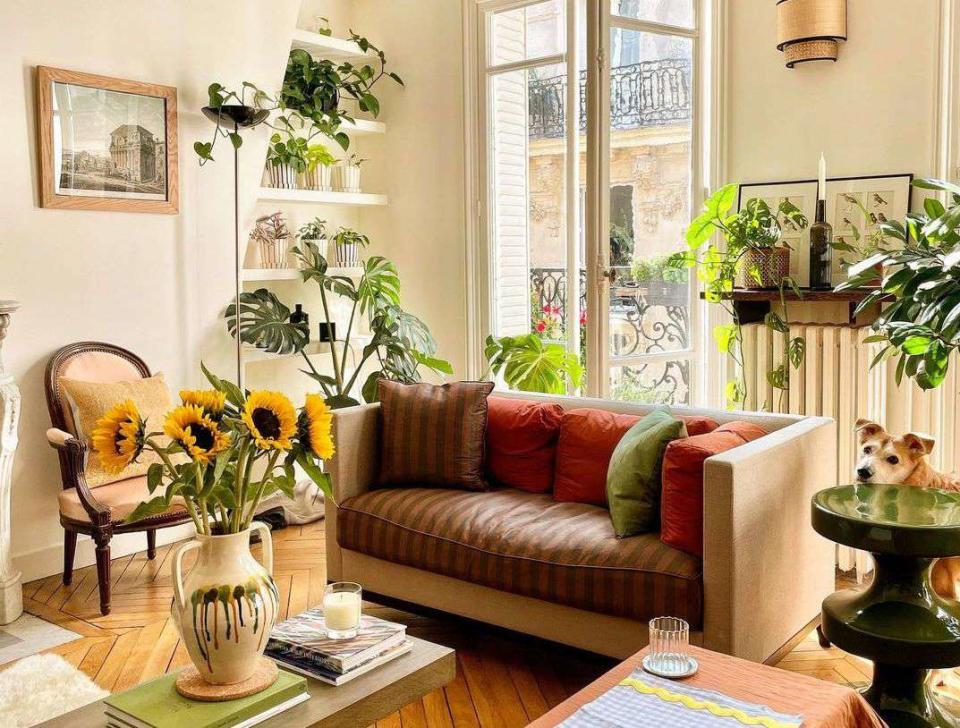
Whether you’re a plant aficionado or just getting started, there’s no denying that the internet is saturated with advice. Some of it is great, but as it turns out—some of it is totally wrong. Luckily, we have expert Ashley Nussman-Berry here to dispel any myths.
As a plant enthusiast, Nussman-Berry founded Black Planters, a virtual Facebook community that was created as a safe space for Black gardeners to gather, connect, and share their latest plant purchases and learnings—and the platform has evolved into something incredible.
In between setting up community gardens in predominantly Black areas and throwing events with Black master gardener speakers, Nussman-Berry offered to share her knowledge and bust a few plant myths.
Ashley Nussman-Berry is an expert houseplant caretaker and the founder Black Planters, an online community to connect Black gardeners.
Myth #1: Do Not Repot Plants in Winter
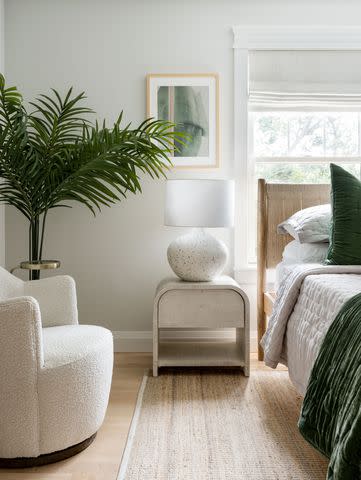
Nussman-Berry shares that the number one myth she wants to dispel is not to repot plants in winter. Turns out, you can re-pot year-round.
"Not all plants go dormant in winter, and if your plant outgrows a pot or you just want to upgrade its pot to something that looks nicer to you, there is no wrong time to do it," she explains.
If you’re still feeling worried, Nussman-Berry says you can get a grow light, which many planters utilize. These lights allow plants to grow in the absence of real sunlight year-round.
"Not repotting a root-bound plant just because it is winter can stress the plant, since its roots have nowhere else to go," Nussman-Berry says. "For plants that go dormant or whose growth slows in winter, I will sometimes even downsize their pots in winter.”
Myth #2: Succulents Are Impossible to Kill
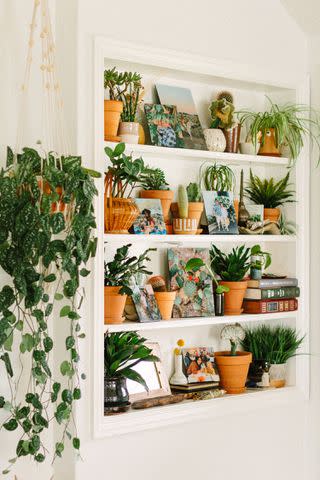
While it’s true that succulents are notoriously easy to care for, they’re not impossible to kill. “Many people kill succulents because they are either overwatering or not providing adequate lighting,” Nussman-Berry says. “They do well as long as they receive lots of light.”
Luckily, succulents are still pretty low maintenance and are excellent beginner plants. “They are great for forgetful people or those who have busy schedules since they can handle being forgotten," Nussman-Berry says. "You can afford to miss watering cycles or leave succulents alone."
Myth #3: There are ‘Easy’ Plants and ‘Hard’ Plants
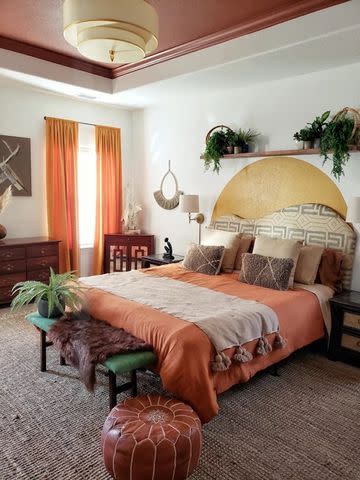
Anyone who lacks a green thumb but craves some greenery at home has searched for "easy plants to grow," right? Nussman-Berry says that’s a complete misnomer—and there are no "hard "plants, either. She feels ‘hard’ plants are getting named unfairly.
“Like people, most plants just want specific things and will thrive once they receive them,” she explains. “Also like humans, they can learn to adapt. For example, some people consider anthuriums ‘hard plants.’ Under the right conditions, they will thrive like all plants."
In the end, it all comes down to research as well as trial and error. “All plants can be easy plants if you give them the right environment and growing conditions,” she says. “You just have to find what each plant likes.”
All plants can be easy plants if you give them the right environment and growing conditions.
Myth #4: You Should Have a Plant in Every Room
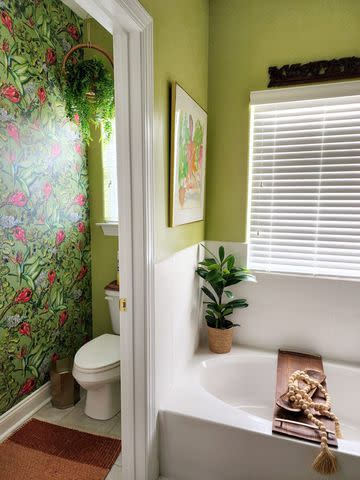
We’ve heard this one before—just add more plants, every room needs greenery. Unfortunately, Nussman-Berry tells us it’s also a major reason plants die. The reality is, many plants die due to poor plant placement because of aesthetics.
“Buying plants just because they will look nice in your home without understanding their needs and requirements is not a very good idea," she explains. “Plants have soared in popularity the last few years, and according to a recent poll in my Black Planters Facebook Group, 14% of members that answered collected plants for their home aesthetic."
Of course, there’s no crime in buying a plant just to make your room look pretty. But unfortunately, Nussman-Berry has noticed that many new plant owners are prioritizing aesthetics over the actual needs of the plant, like placing a plant in a bathroom with poor or no lighting.
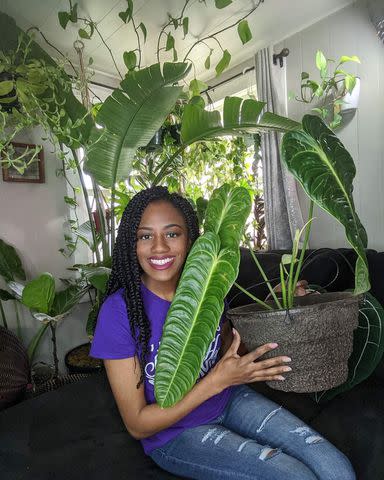
Ashley Nussman-Berry of Black Planters
Myth #5: You Can’t Reuse Soil
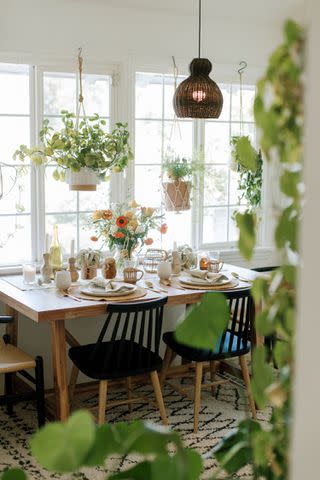
Many believe that you can’t reuse soil, and Nussman-Berry once thought the same. But, many seasoned gardeners know that this is not necessary.
"You do lose some nutrients each time you reuse it, but this should not be an issue if you are fertilizing your plants—and you can save a lot of money by reusing your soil," Nussman-Berry says.
Myth #6: Bigger Pots are Better
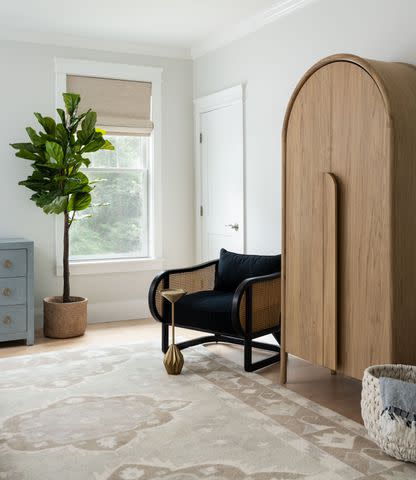
On the one hand, this myth makes sense. Your houseplant will surely grow to fill the space, right? Wrong.
“Many people believe a bigger pot means more room for a plant to grow into it, or that it will grow faster, but this is not true for most plants,” Nussman-Berry says. “You'll be more likely to overwater the plant, and this will likely result in root rot. It can work if you make sure the plant has proper and fast-draining soil, and if you make certain to not overwater.”
Myth #7: Place a Pebble Tray Under Your Pot
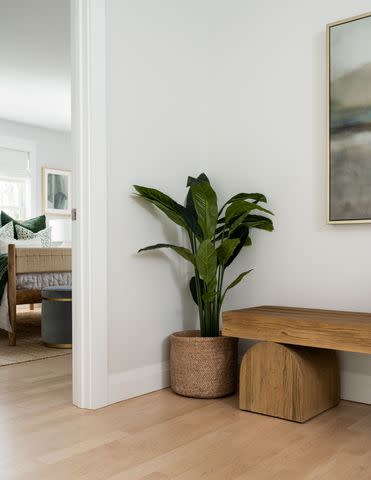
If you’ve ever heard that you should place a tray of pebbles under your houseplant, you’re not alone. Some say pebble trays placed under a pot provide humidity, when this is not the case, according to Nussman-Berry.
“The small amount of humidity created by these trays does not reach the plant," she says. "If you want extra humidity, there are many humidifier options available online and in stores.”
Myth #8: Certain Foods Can Make Shinier, Healthier Leaves
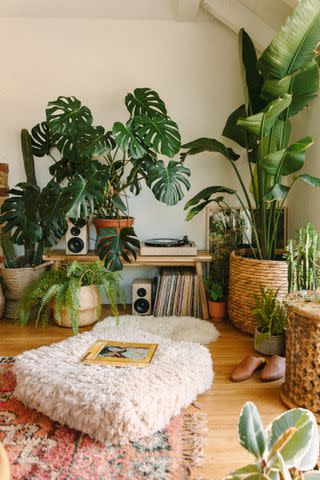
Not only will smearing food on your leaves, like eggs or mayonnaise, not make them shiny, but it can actually harm your plants.
“Putting either of these foods on leaves to add extra shine can clog the leaves’ openings and make it harder for them to capture light," Nussman-Berry says. "Anything that will add a layer of gunk on the plant probably is not a good idea.”
Myth #9: You Either Have a Green Thumb or You Don’t
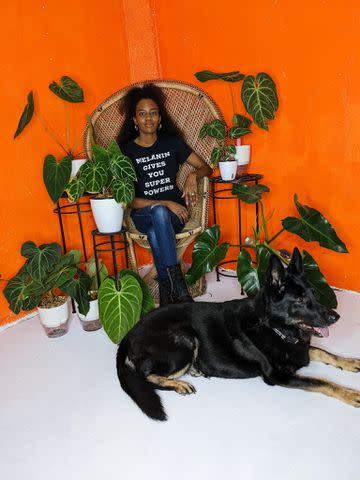
Ashley Nussman-Berry of Black Planters
Like anything, owning and keeping plants alive is a learned skill—and Nussman-Berry says people should overcome their fears and just do it.
“For those scared to keep plants, just try it,” she says. “If you kill a plant, buy another. Keeping plants is a learning experience—you pick up new tricks as you go and use them to be a better plant parent. Some plants may die while you learn, but eventually, you learn what works and what does not for you and each plant.”
Read Next:8 Expert Reasons Your Houseplant Obsession Might Actually Be Harmful

 Yahoo Autos
Yahoo Autos 